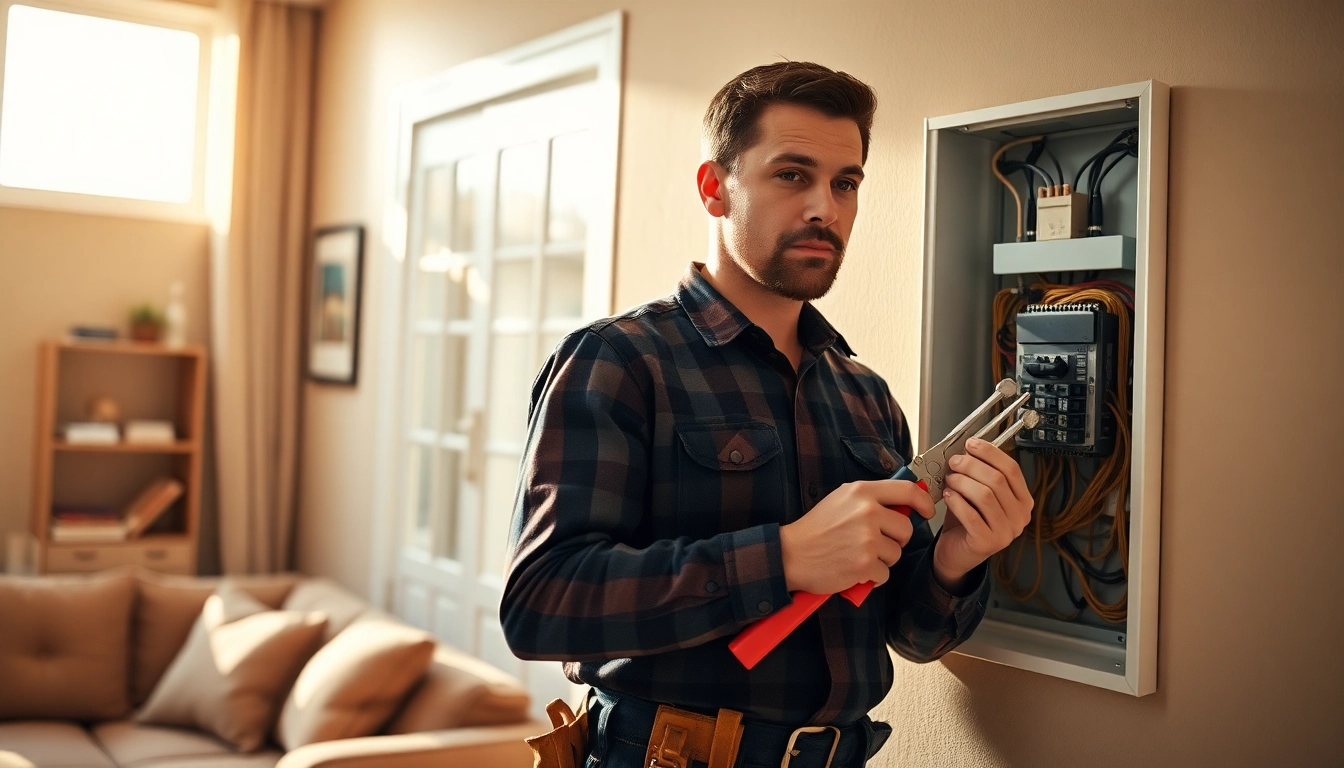Electrical safety is a top priority in every home, and while calling a professional Electrician is essential for complex tasks, there are several precautions homeowners can take to reduce risks and prevent accidents. Understanding how electricity works—and how to handle it safely—can save lives and protect your property. Below are key safety tips from a professional electrician that every homeowner should follow.
Understand Your Home’s Electrical System
Familiarity with your electrical system allows you to respond quickly in case of an emergency. A knowledgeable electrician can help you understand what everything does and how it functions.
Locate Your Breaker Panel
Know where your main breaker panel is located. An electrician recommends labeling each breaker so you can shut off power to specific areas if needed.
Know the Signs of Trouble
A skilled electrician will tell you to watch for warning signs like flickering lights, tripped breakers, buzzing noises, or burning smells—all indicators of potential problems.
Don’t Overload Circuits
Plugging too many devices into one outlet or power strip can overload a circuit and cause fires. An experienced electrician advises using outlets responsibly and avoiding daisy-chaining power strips.
Use Dedicated Circuits
Your electrician may recommend installing dedicated circuits for high-powered appliances like microwaves, washing machines, or air conditioners to prevent overloads.
Upgrade Your Panel
If your home is older, an electrician can upgrade your panel to better support today’s electrical loads and improve overall safety.
Use GFCI and AFCI Protection
Ground Fault Circuit Interrupters (GFCIs) and Arc Fault Circuit Interrupters (AFCIs) are crucial safety features every home should have. A certified electrician ensures these devices are installed in key areas.
Where They’re Needed
An electrician installs GFCIs in wet areas like bathrooms, kitchens, and outdoor outlets, while AFCIs are used in bedrooms and living spaces to prevent arc-related fires.
Test Monthly
Your electrician recommends testing these outlets monthly by pressing the “Test” and “Reset” buttons to ensure they function properly.
Avoid DIY Electrical Work
One of the biggest safety mistakes homeowners make is attempting their own electrical repairs. Even simple-looking tasks can be dangerous without proper training.
Call a Licensed Electrician
If you’re unsure or the job involves wiring, breakers, or panels, always call a qualified electrician. DIY mistakes can result in fires, shocks, or code violations.
Permits and Inspections
An electrician ensures that all work is properly permitted and inspected, keeping you safe and legally compliant.
Practice Safe Outlet and Cord Usage
Using outlets and cords correctly reduces your risk of electrical fires and shock.
Check for Damage
Your electrician advises inspecting cords regularly. Replace frayed or cracked wires immediately and never run cords under rugs or furniture.
Use the Right Extension Cords
A professional electrician warns against using indoor cords outdoors or overloading extension cords beyond their rated capacity.
Childproof Your Home
If you have young children, taking extra precautions around electricity is critical. A residential electrician can help childproof your home safely.
Outlet Covers
Install tamper-resistant outlets or use safety covers. An electrician can install modern outlets that automatically block access without proper plugs.
Secure Wiring
Make sure loose cords are out of reach. An electrician can install additional outlets to eliminate the need for dangerous cord setups.
Keep Water Away from Electrical Sources
Water and electricity are a deadly combination. Always follow basic safety around outlets, switches, and appliances near sinks, tubs, and outdoors.
Install Outdoor Covers
An electrician ensures that outdoor outlets have weatherproof covers and are GFCI protected to prevent shock hazards during rain.
Don’t Handle Devices with Wet Hands
A qualified electrician reminds homeowners to dry hands before touching appliances or switches, especially in kitchens and bathrooms.
Conclusion
Practicing electrical safety at home is vital—and often simple. From using outlets properly to avoiding overloaded circuits, these basic steps can prevent major hazards. Still, the most important advice is to rely on a trained electrician for any complex or risky work. A professional electrician not only ensures compliance with safety codes but also protects your home from avoidable danger. Don’t cut corners when it comes to electricity—trust a certified electrician to help you maintain a safe and secure living environment.




